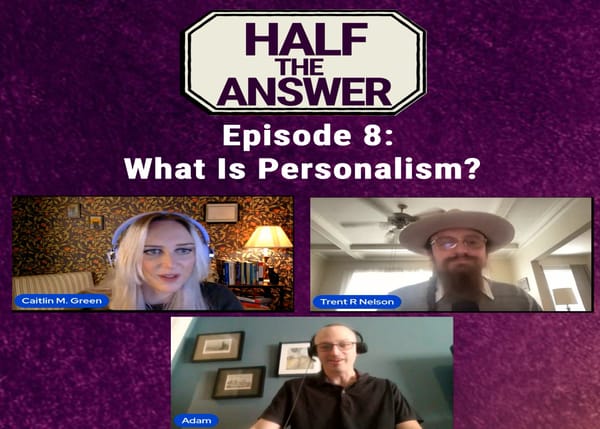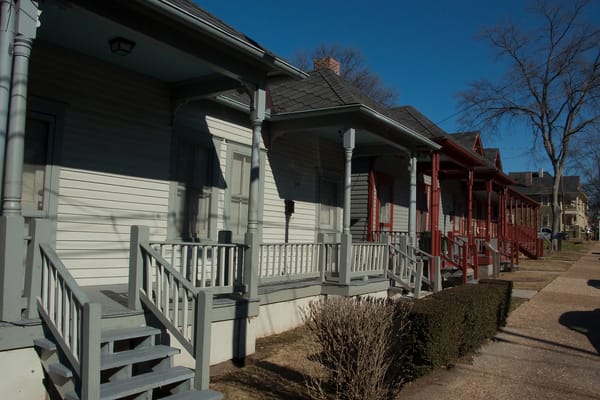The Post-Liberal's Dilemma

Illiberalism is something of a fashion around the world today. Sometimes it goes explicitly by that name, such as with Viktor Orban’s self-declared “illiberal democracy.” In other instances, it has a more amorphous character, such as with American Conservative columnist Rod Dreher’s self-description as a post-liberal, which suggests perhaps not total opposition, but certainly a surpassing, of liberalism.
These visions share a few features in common in rejecting liberalism. The first is that they purport to be aimed at some vision of the good, in contrast to liberalism which is value-neutral on most matters not involving individual rights. There are two conflicting versions of how this conflicts with liberalism according to post-liberals (with different post-liberals making different arguments). For some, the opposition to liberalism is because liberalism’s value neutrality is seen as standing in the way of utilizing the levers of state power to bring about the particular vision post-liberal prefers. Others, such as Dreher, see liberalism as not in fact neutral between goods but having certain inherent tendencies to prefer individual and particular—as opposed to collective and shared—goods over others.
Yet what is not often acknowledged is that liberalism ingeniously solves a problem that has long bedeviled the world, and that even if post-liberals have grown disenchanted with liberalism, that problem does not go away. That problem is: “How do we deal with competing visions of the good in a society that is diverse and pluralistic in its outlook?” We know what the “solutions” prior to liberalism have historically been. These are what Jonathan Rauch, in the Constitution of Knowledge, calls “Creed Wars” and they very often include actual wars, pervasive persecution, and forced migration.
It is obvious to state but worth noting that this is not an abstract question. The United States is just such a pluralistic society. George Washington University political science professor Samuel Goldman observes that, even though many of the founding generation may have wanted a society marked by a more religious vision of the good, “It didn’t work out that way, because even at the time, the population was too diverse, the institutions were too precariously balanced to permit it.”
In a long piece for The American Conservative Dreher runs into this problem in the course of an examination and discussion of integralism, which for simplicity’s sake can be described as a political vision that works for greater union between the state and the Catholic Church in pursuit of a vision of the good as understood by Catholicism. Or, for another way to gloss it, it shares many similarities with Plato’s Republic but swaps out Plato’s Philosopher Kings for the Catholic hierarchy. (It is important to caveat that this is very far from being a mainstream position among Catholics—it is largely confined to a few academics and public intellectuals ).
Dreher has many sympathies with the integralists in what he takes to be the failings of liberalism. Yet when thinking about what integralism calls for, the creation of a state aimed at pursuing the Catholic good, Dreher (who is himself Eastern Orthodox) understandably balks. What is to become of religious minorities under such a system? (Not to mention those of us who are not religious!) Why would folks voluntarily consent to such a government if they were not themselves Catholic integralists?
In this way, Dreher rediscovers the challenge of living peacefully with difference that liberalism emerged to resolve. Dreher acknowledges the challenge—the post-liberals cannot agree even amongst themselves about a vision of the post-liberal good. Dreher even acknowledges the value of liberalism in allowing for a peaceful status quo amongst competing visions, yet his deeply felt critique of liberalism does not allow him to rest content with liberalism. Thus, the post-liberal’s dilemma. They see liberalism as intolerable, but any move away from liberalism runs straight back into the question of living peacefully with different visions of the good that liberalism is meant to solve.
The conundrum that post-liberals are left with is that there is no decent way to arbitrate disagreements about the good even amongst themselves. There are indecent alternatives that aim to make society less diverse and pluralistic. For example, inquisitions, wars, and forced population transfers which impose a terrible tragedy on people in the name of a higher good. (To be fair, many post-liberals do not endorse these tactics—but they are what illiberal regimes have turned to in the past.) Further, to the degree that the post-liberals have robust and different visions of the good, these different visions will necessarily come into conflict. (For example, integralism is actually cosmopolitan and global in its scope, envisioning a universal Church, as compared to nationalist post-liberal visions.)
And there is reason to worry that they may be drawn to these indecent alternatives. After all, if the main point of contention is simply that not enough people are religious or recognize the importance of religious values—well liberalism does allow for persuasion and conversion! Yet to hold this view is not to be a post-liberal at all, but simply to be the very decent David French, making use of liberal freedom to persuade others to join his corner. To even call oneself a post-liberal is to hint that alternatives other than persuasion are being seriously considered.
The post-liberal is, in effect, pushed into a circular regress, oscillating between two unacceptable outcomes. They could retain much of their critique but grudgingly grant that liberalism is perhaps the best we can manage in an imperfect world, or they could accept varying levels of indecency to achieve their vision. For me, I hope their sense of decency wins out and perhaps even pushes them to acknowledge that, as messy, noisy and complicated as it is, a liberal society that allows for individuals to pursue many goods really is a rather nice place to live.
Featured Image is Freedom of Worship, by Norman Rockwell




